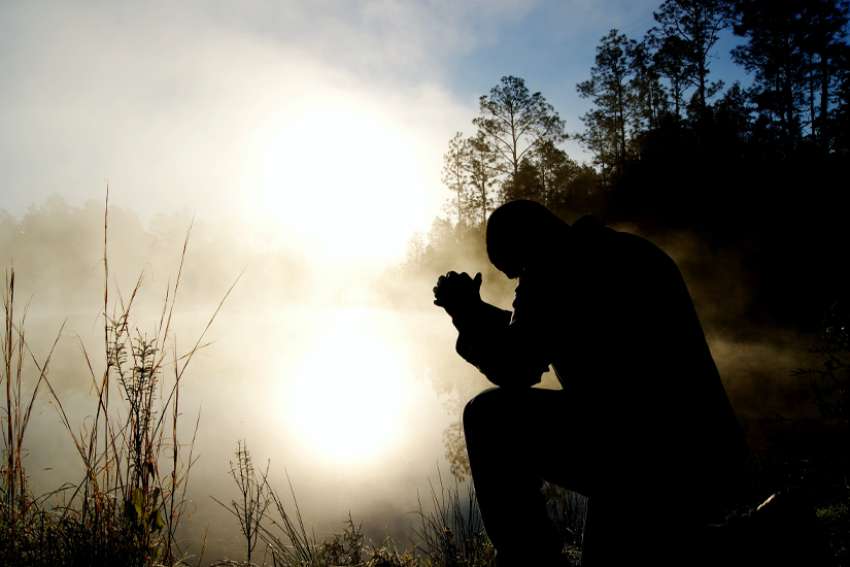Physical sickness (and death, for that matter!) come from the Fall of Man by committing the Original Sin in the Garden of Eden. Is it as simple as that? Yep. The soul (by its nature) continued to be immortal but the body lost its immortality at the Fall and became subject to physical sickness and death. Both developed respective illnesses: spiritual and physical.
Human beings are created in the image of God, body and soul. The soul is like God in its three faculties of mind, will and heart. Before the Fall, Adam and Eve’s minds easily perceived and grasped truth. Their wills were strong and easily acted on the truth. Their hearts easily ordered their passions rightly. After the Fall, our minds became darkened and readily deceived; discerning the truth became difficult. Our wills became weak. Our hearts, inclinations and appetites became unruly. Explains a lot, doesn’t it?
So, are we doomed to personal and collective disaster? Not at all! God never abandoned Adam and Eve, and He never abandons us. Jesus, our Lord and Saviour, came to liberate us from our number one enemy: sin. He didn’t come as a great political leader as many expected, and as many today try to make Him out to be. Pope John Paul II often spoke of “social sin,” knowing it is always grounded in personal sin. On the positive side, when we let Jesus help us overcome sin, it spreads out into society. We can no longer say, “we live in a fallen world,” but rather, “we live in a fallen-redeemed world!”
Jesus accomplished a universal redemption of the world. Anyone who wants to can and must appropriate it for it to be effective in their lives. Redemption is general. Salvation is personal. Thus, we speak of the “salvation of the soul.”
So, how do I take advantage of the healing of the Redemption? Well, the instructions are right in the New Testament. First, repent, get yourself baptized, become a member of the Body of Christ, His Church, and then live out the Divine Master’s teachings (for our minds), morality (for our wills), and worship (for our hearts) in His sacramental system which pours grace into our souls for our healing and gradual sanctification.
What about our physical illnesses? Is the Redemption just for our souls? Nope. We are one person, body and soul, and each can greatly affect the other. This is where Theology of the Body comes in, big time. Jesus showed over and over in His teachings, healings and miracles that the two are connected, but that there is a “primacy of the spirit.” In the Gospels, when Jesus told the paralytic his sins were forgiven, how could He prove that? By making the paralytic walk. St. Hildegard of Bingen, who was well-versed in herbal and other natural cures, asserted: “The stones won’t work if the soul is sick. First, heal the soul.”
When we speak of physical healings, be they ordinary or extraordinary, natural or supernatural, or a mix of both — we will always run into the conundrum of: Who “gets” to be healed? Why did that person get healed and not that other person? Is God favouring people? What we do know is that God’s will is always a saving will in everyone’s regard. Whatever is optimal for the salvation of your soul is what God will do or allow!
Theology of the Body also points us to the wonderful concreteness of God’s power and action in the physical world. The Seven Sacraments (most especially the Eucharist) are nothing else than God working through matter to change our reality for the better.
If all else seems to “fail” in our quest for spiritual and physical healing in this life, remember: “Earth has no sorrow that Heaven cannot heal” — St. Thomas More. The Easter Liturgy calls this “the healing of eternity.” “By His wounds we are healed” — Isaiah 53:5.
(Sr. Burns, fsp, is a Daughter of St. Paul. She holds a Masters in Media Literacy Education and studied screenwriting at UCLA. HellBurns.com. Twitter: @srhelenaburns.)


